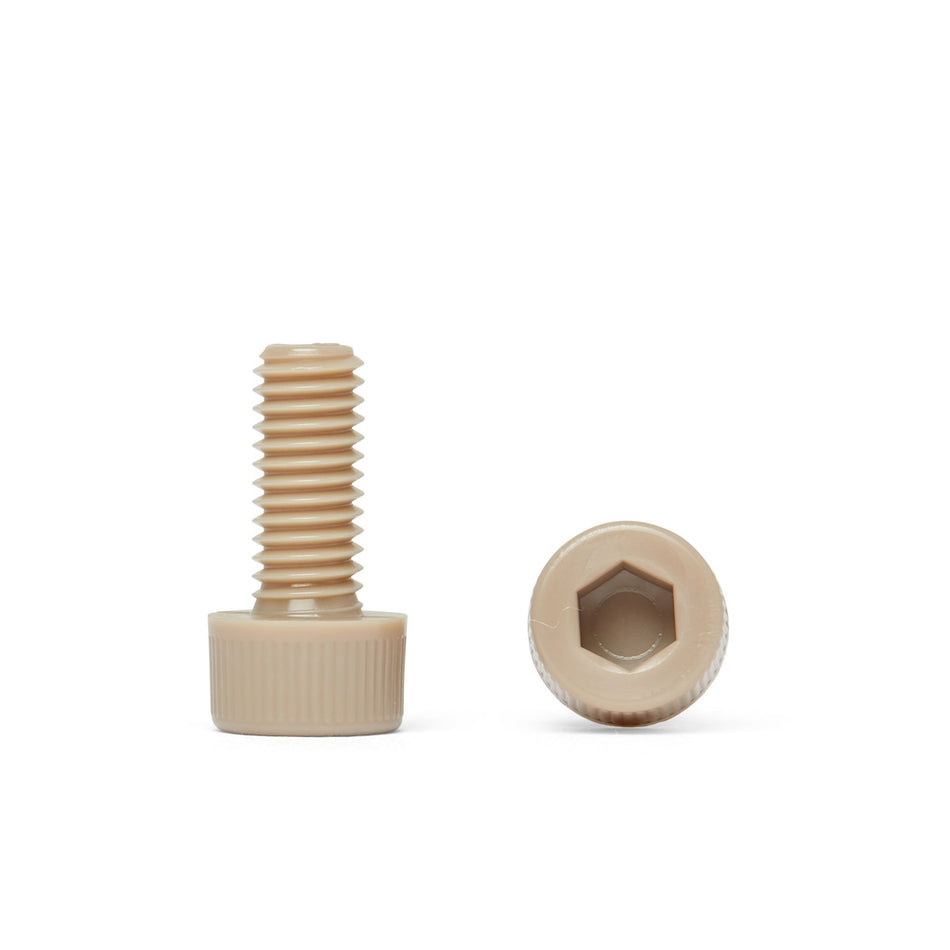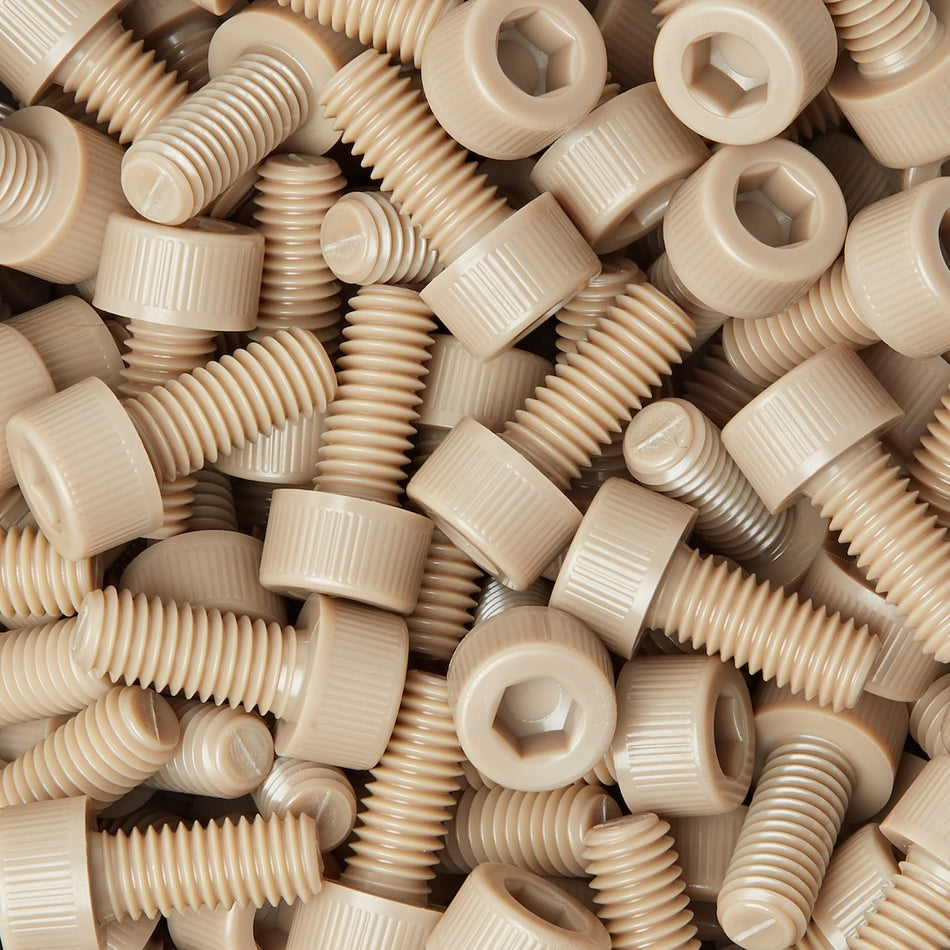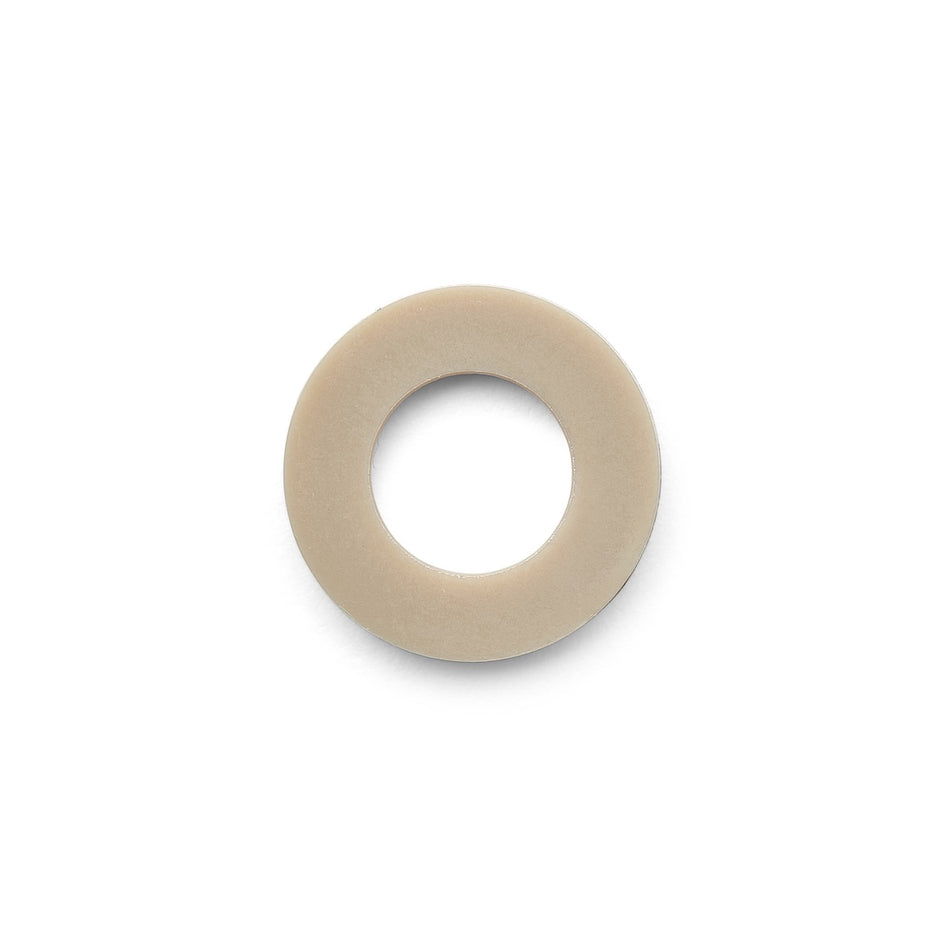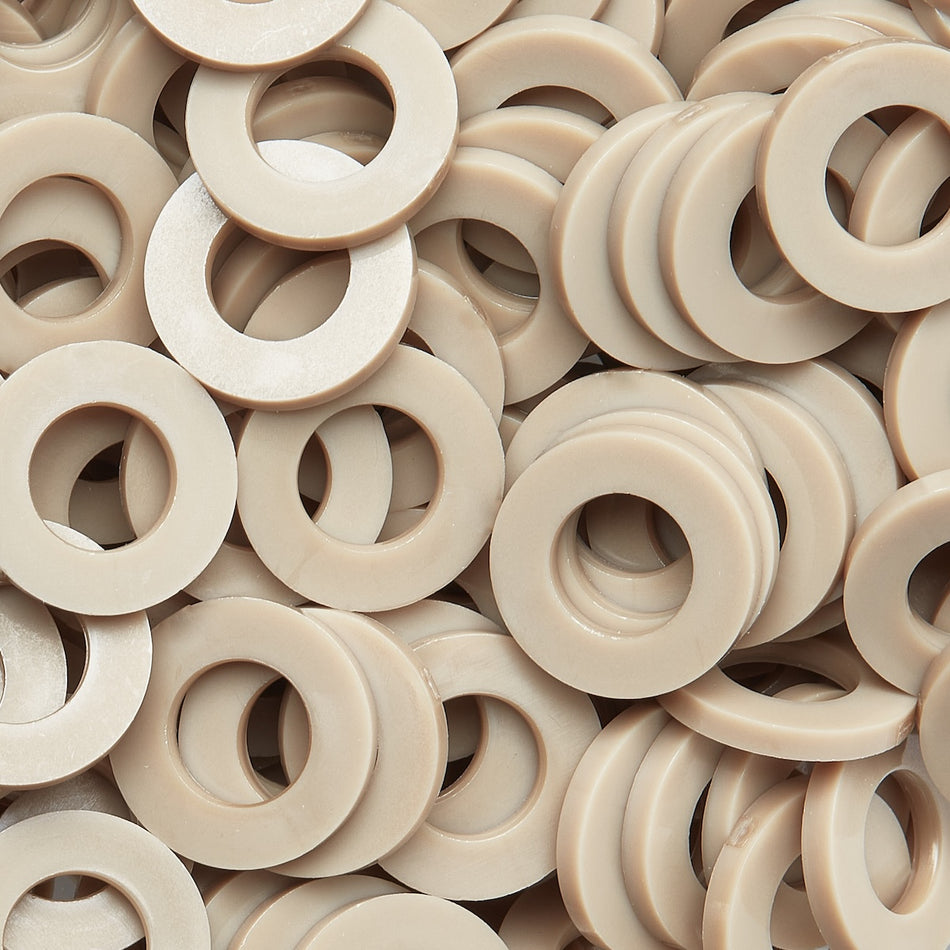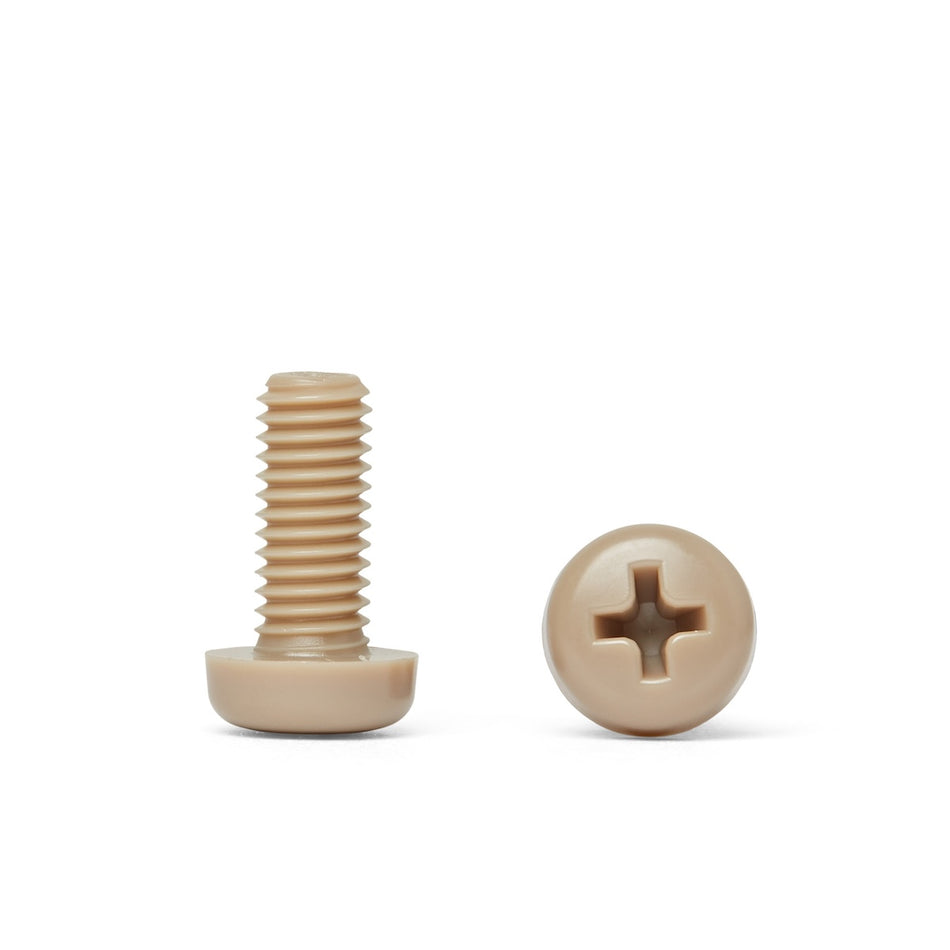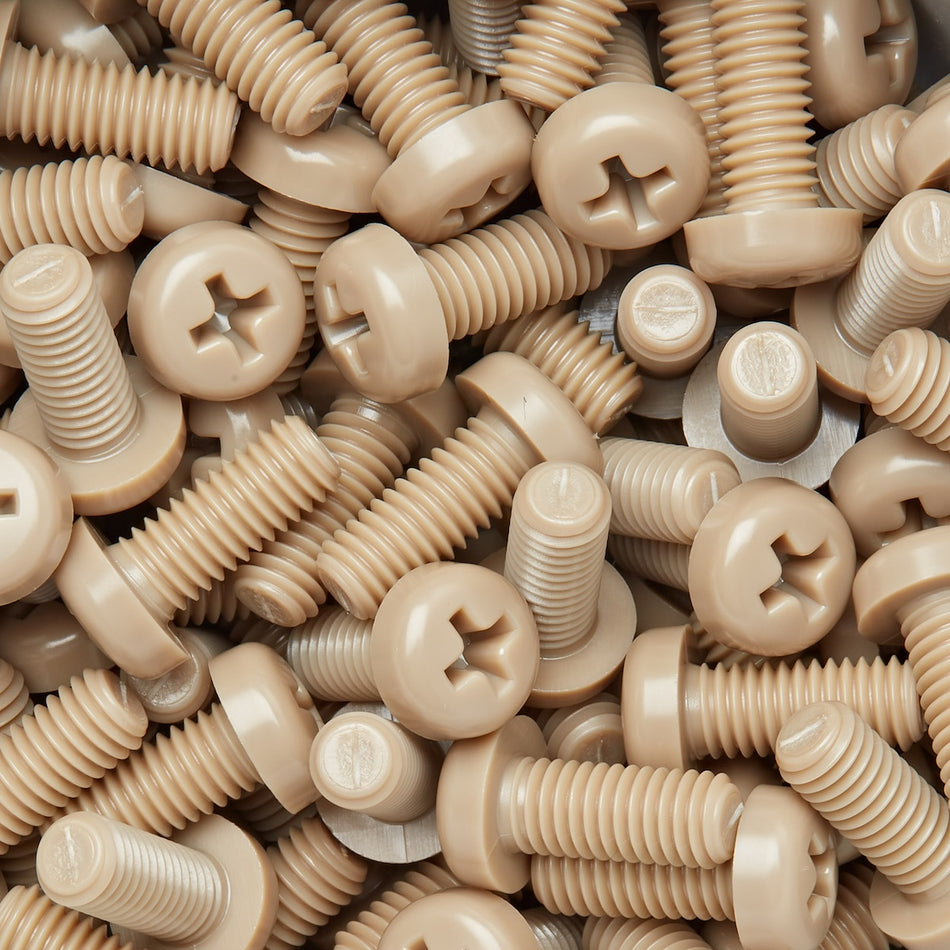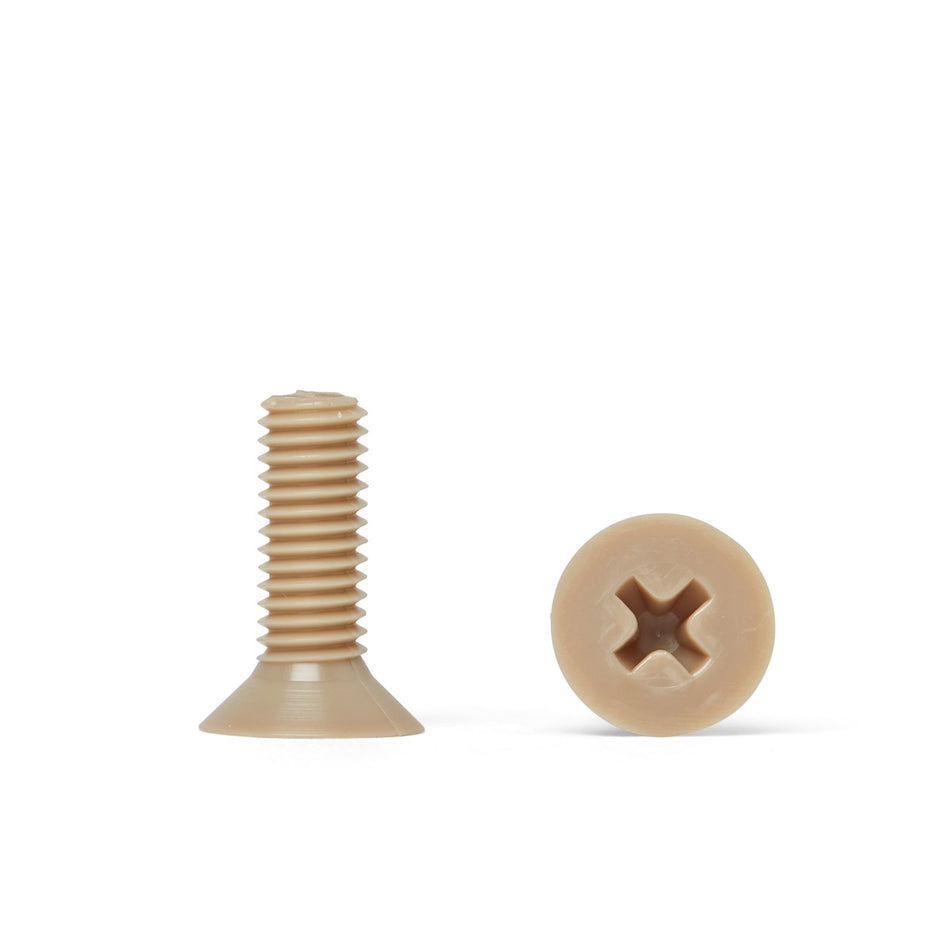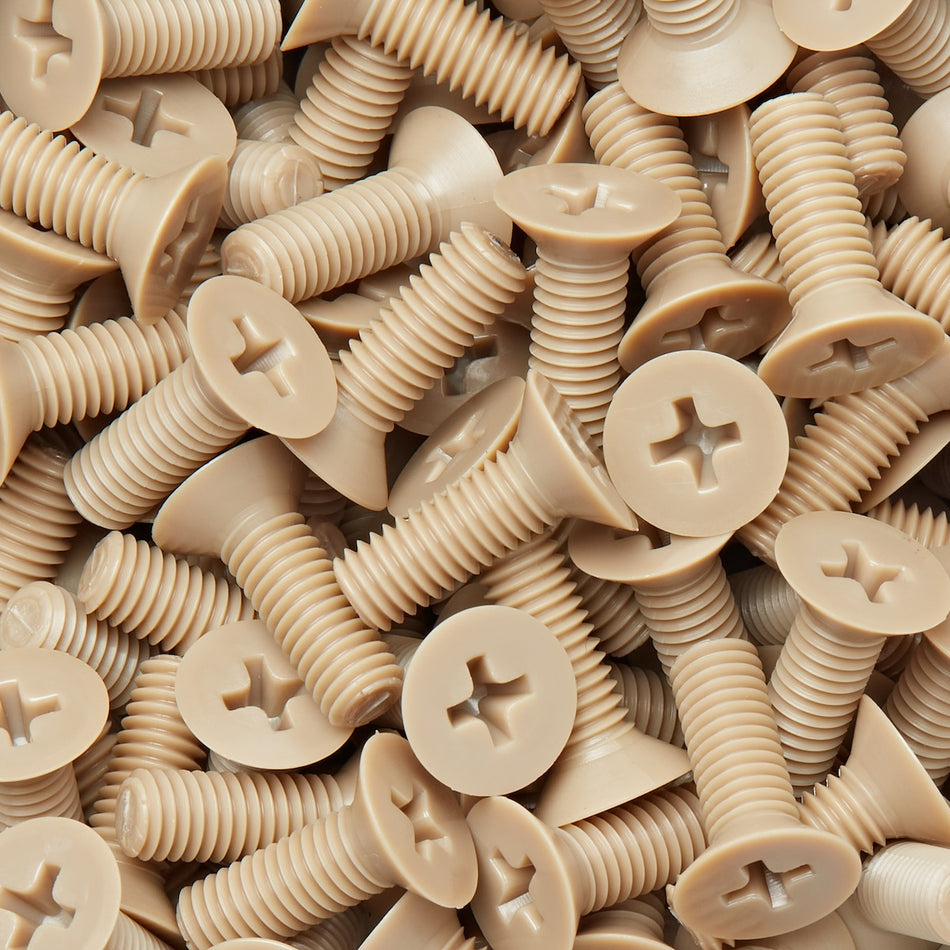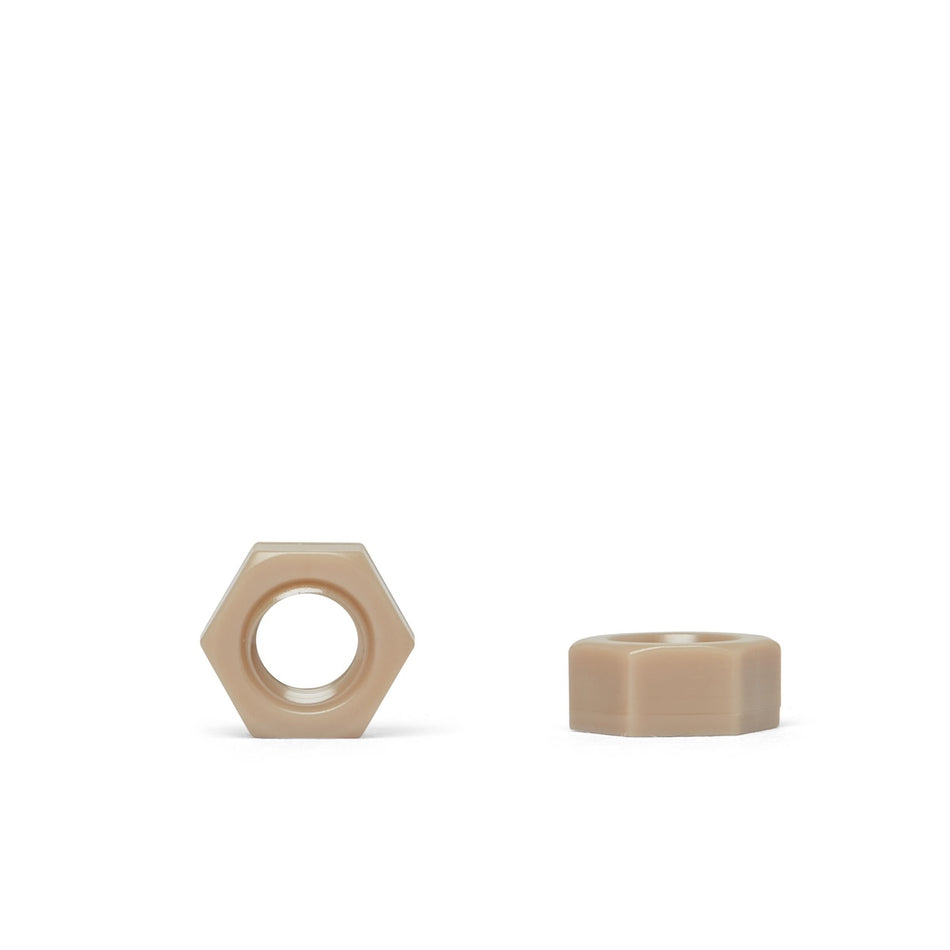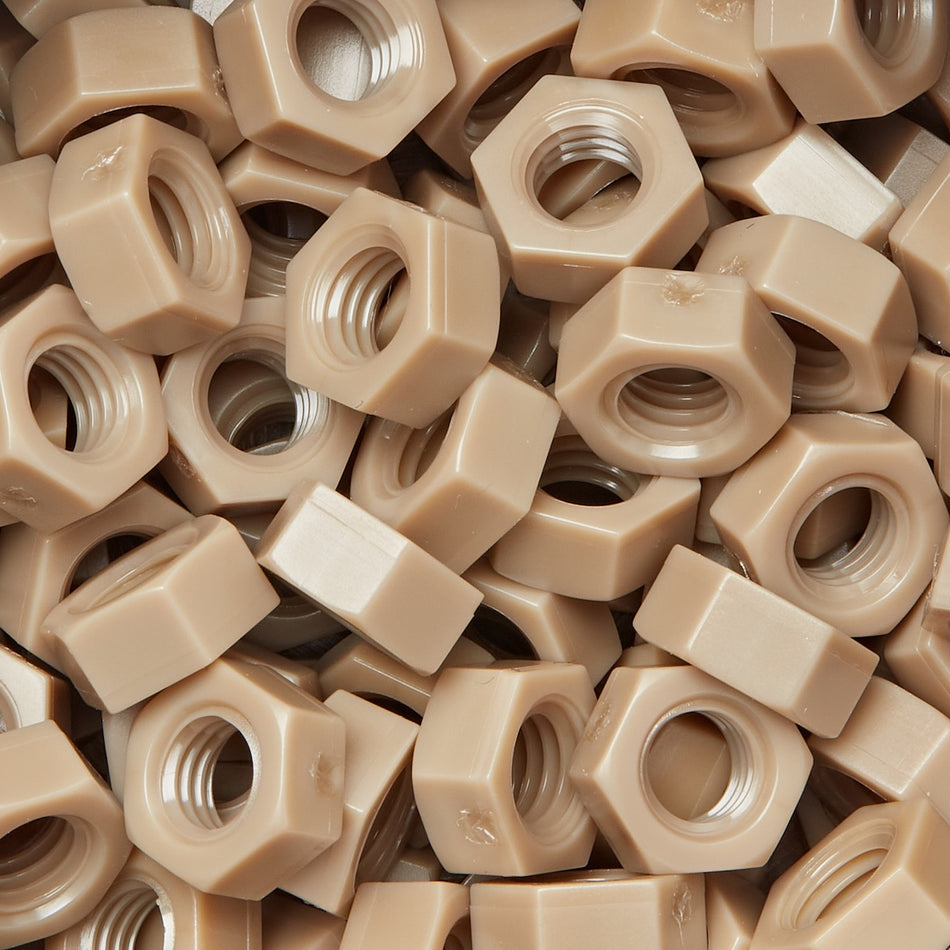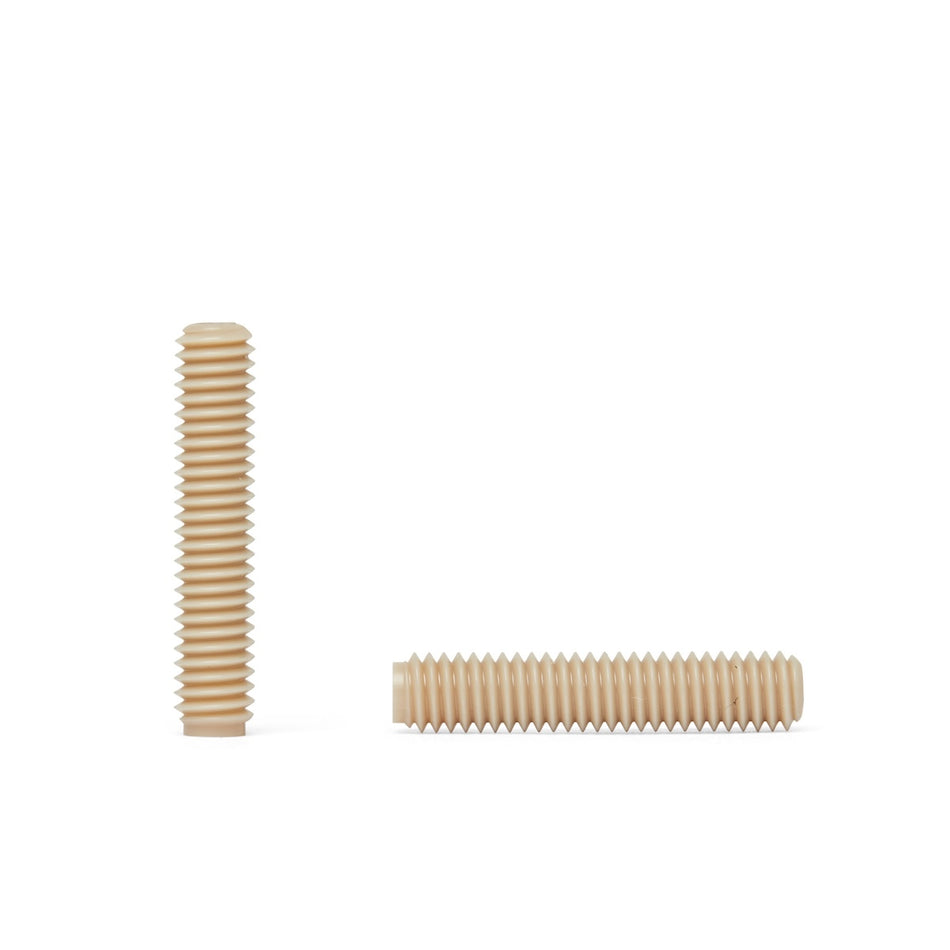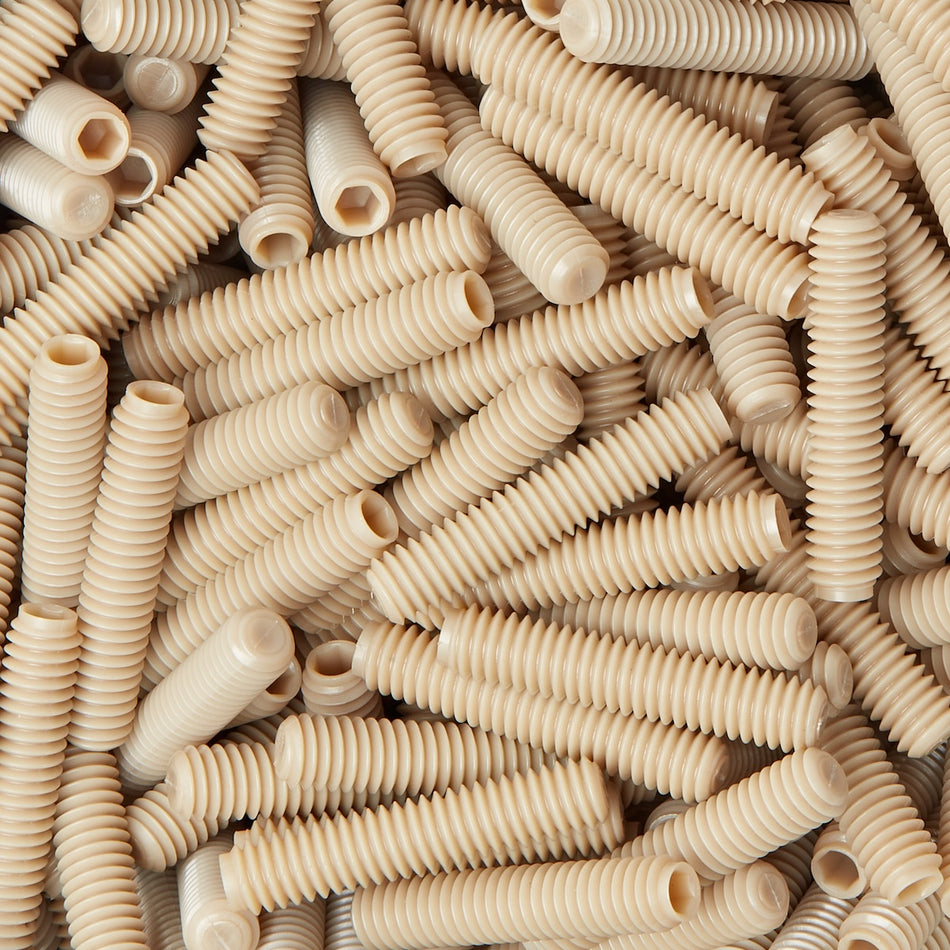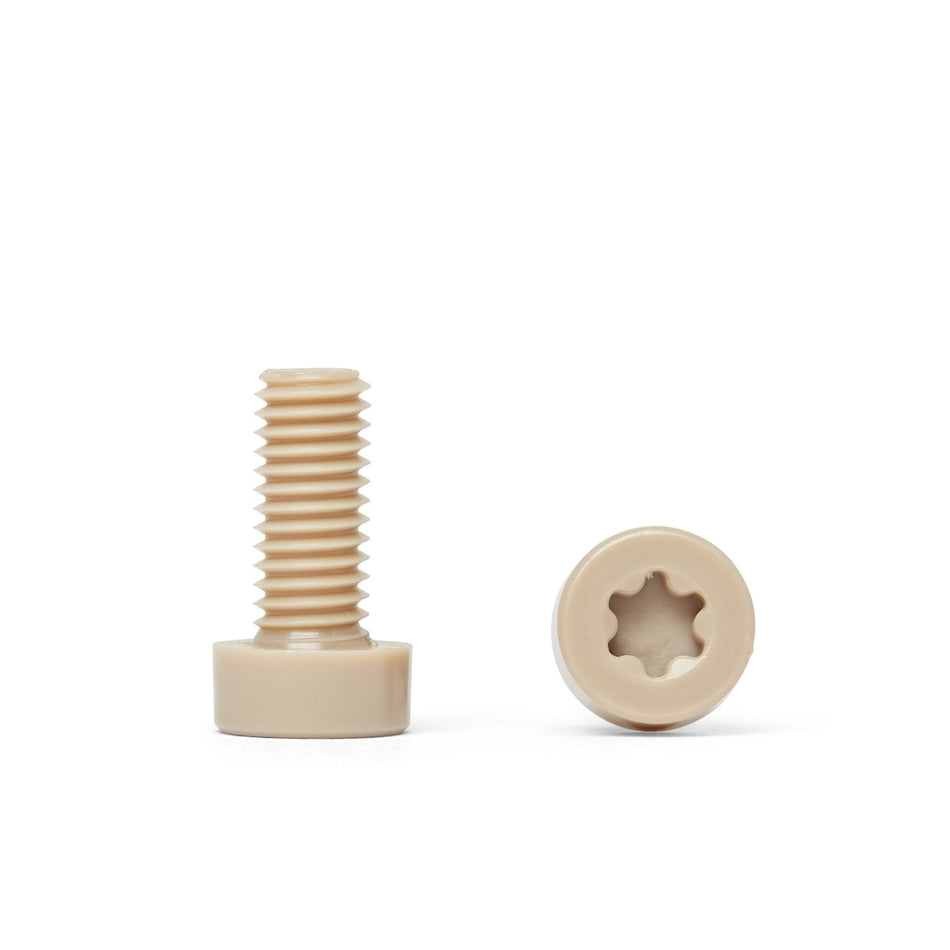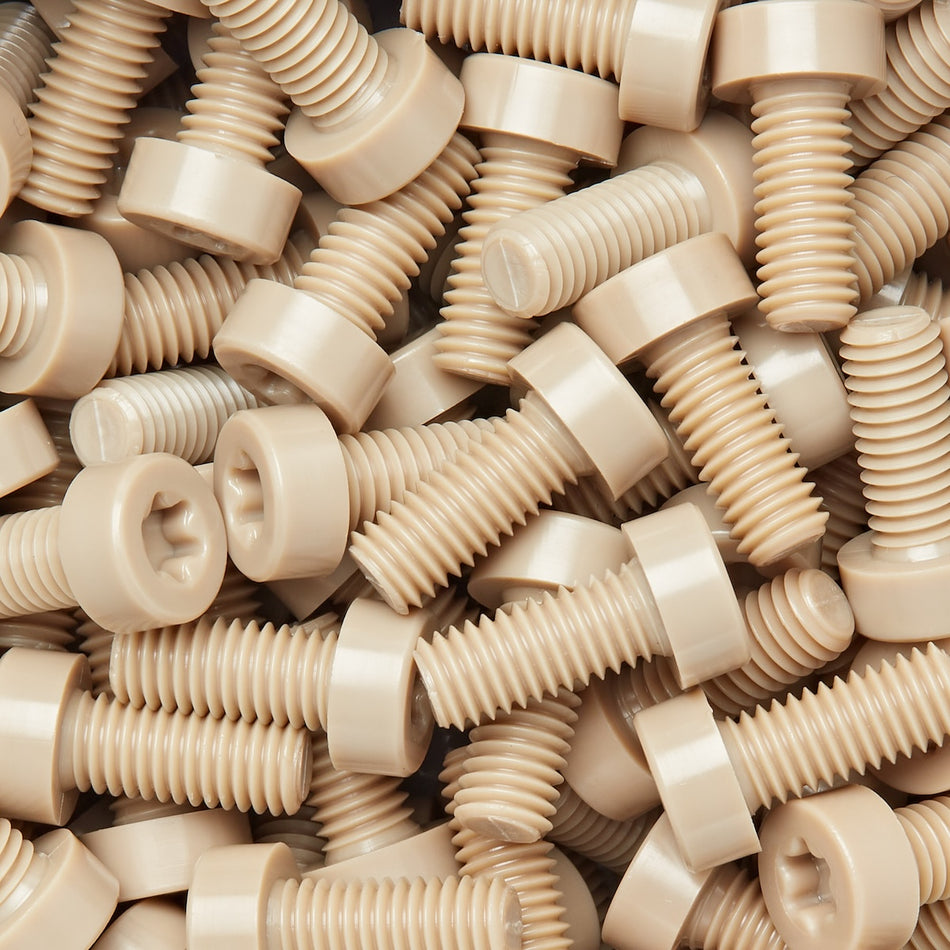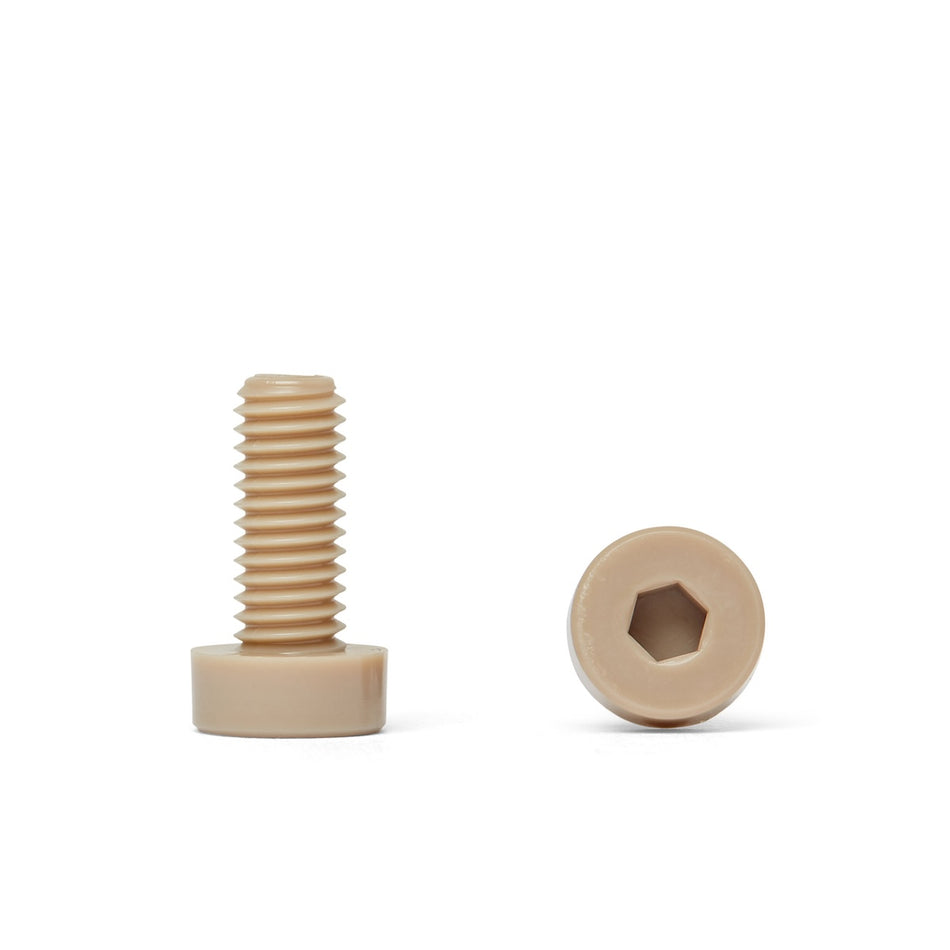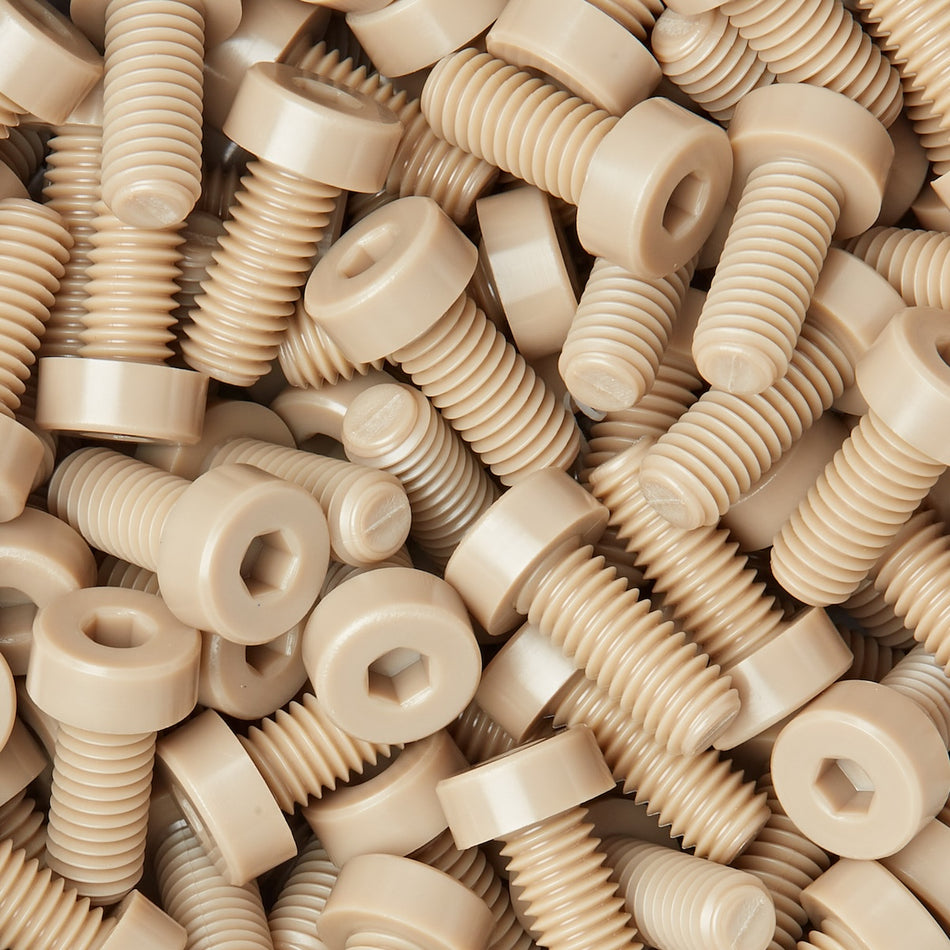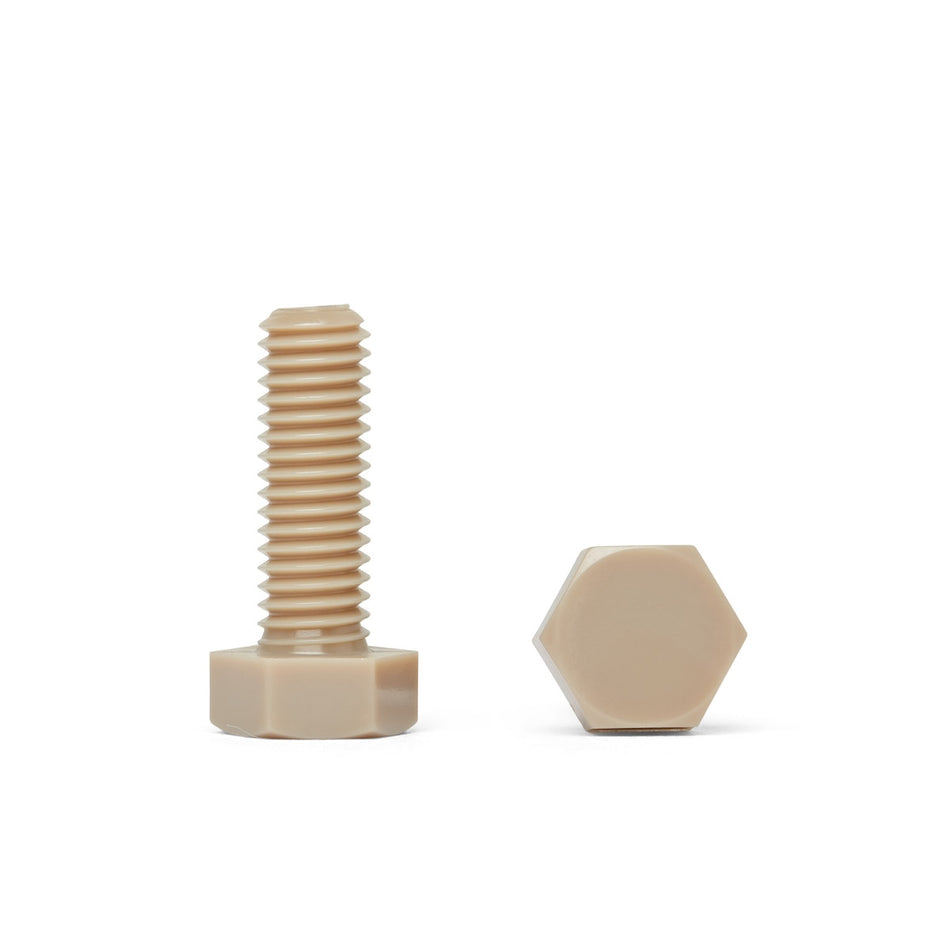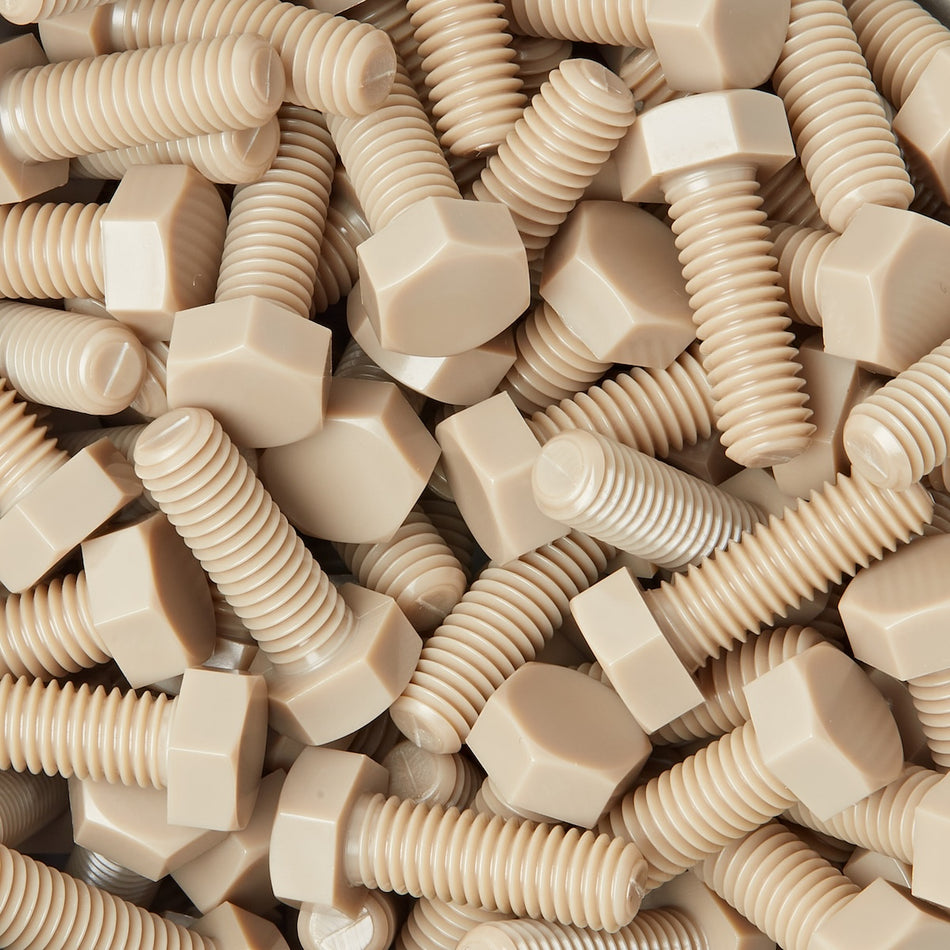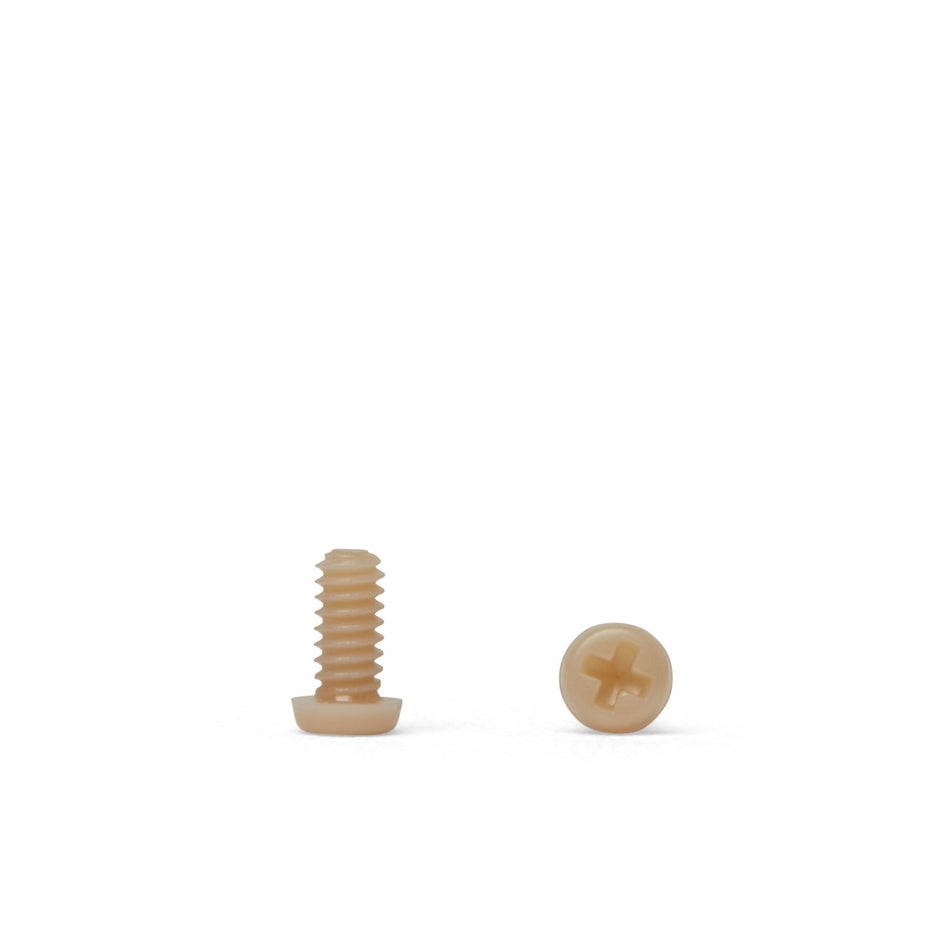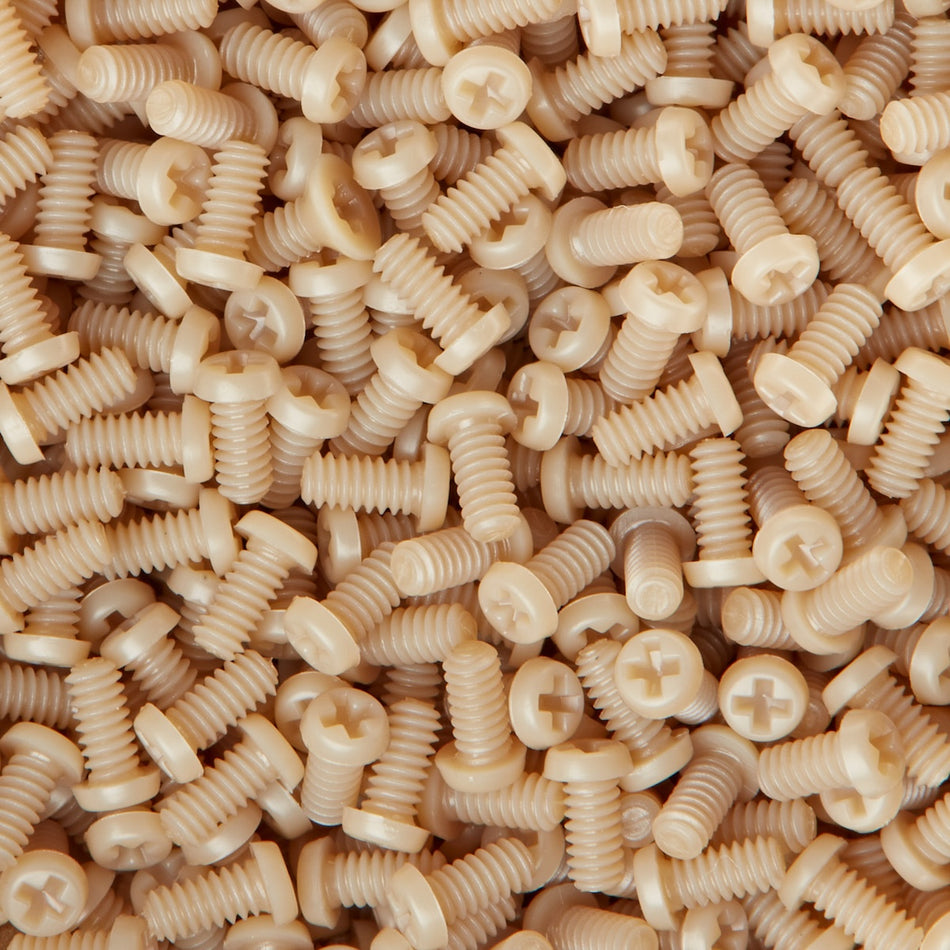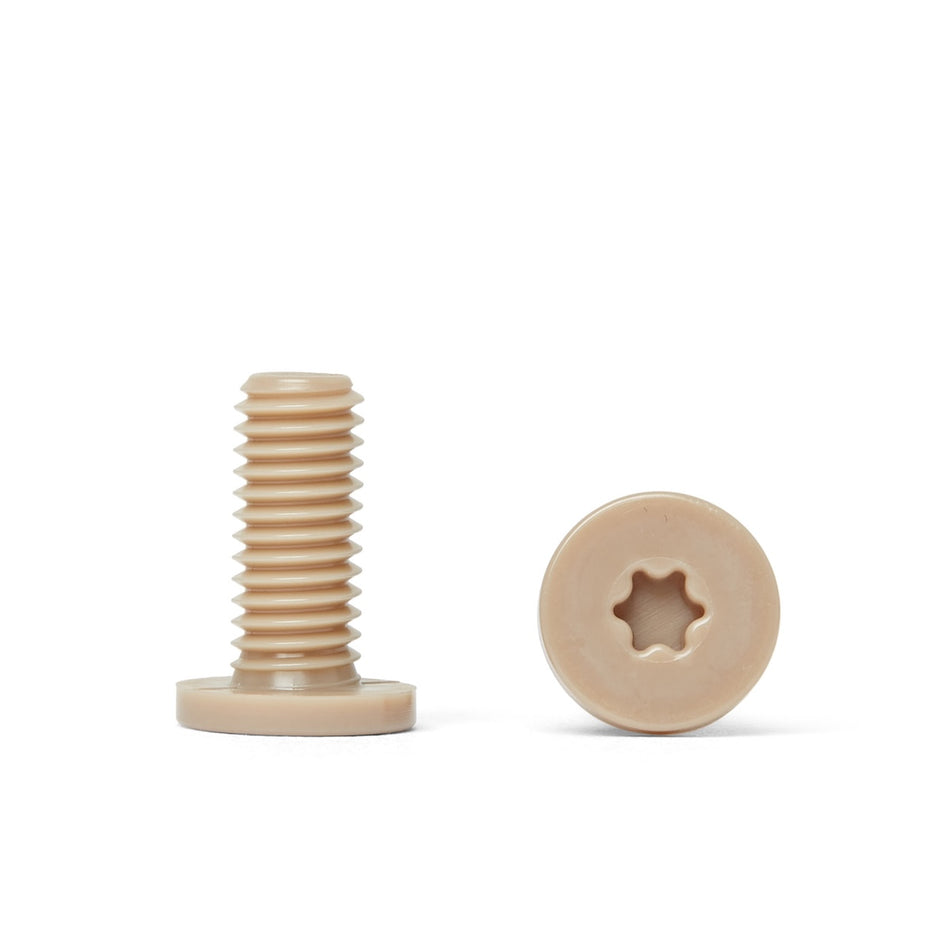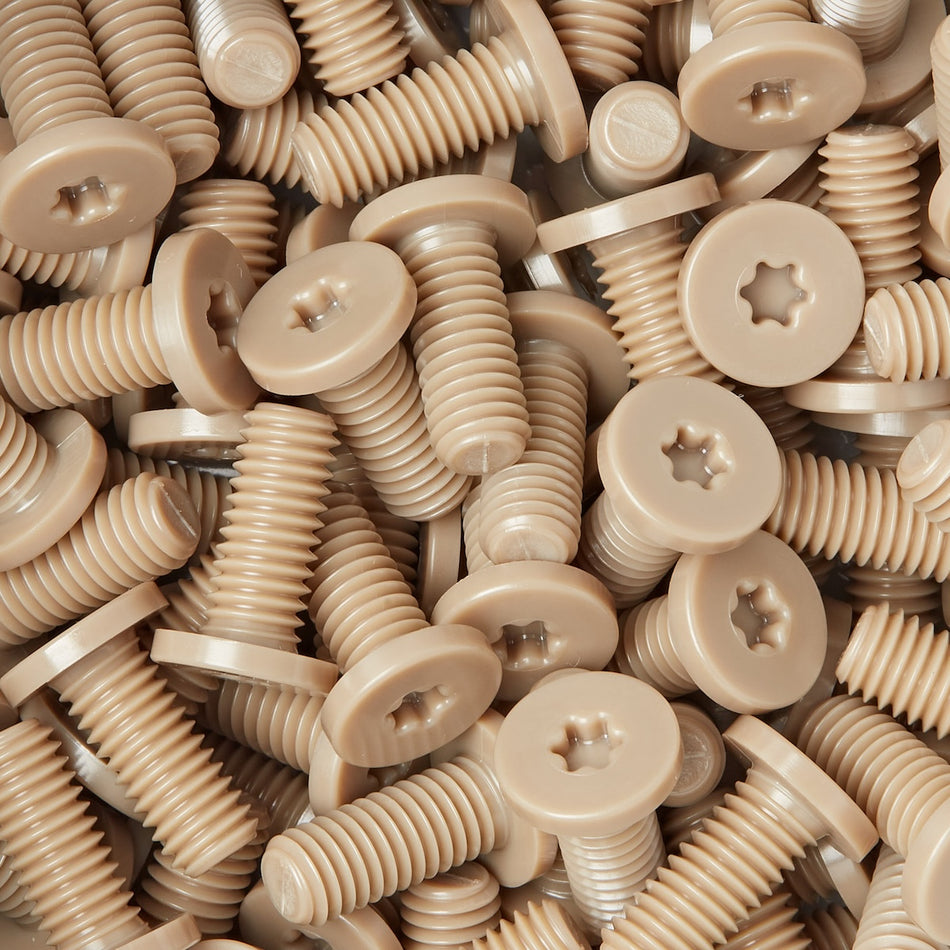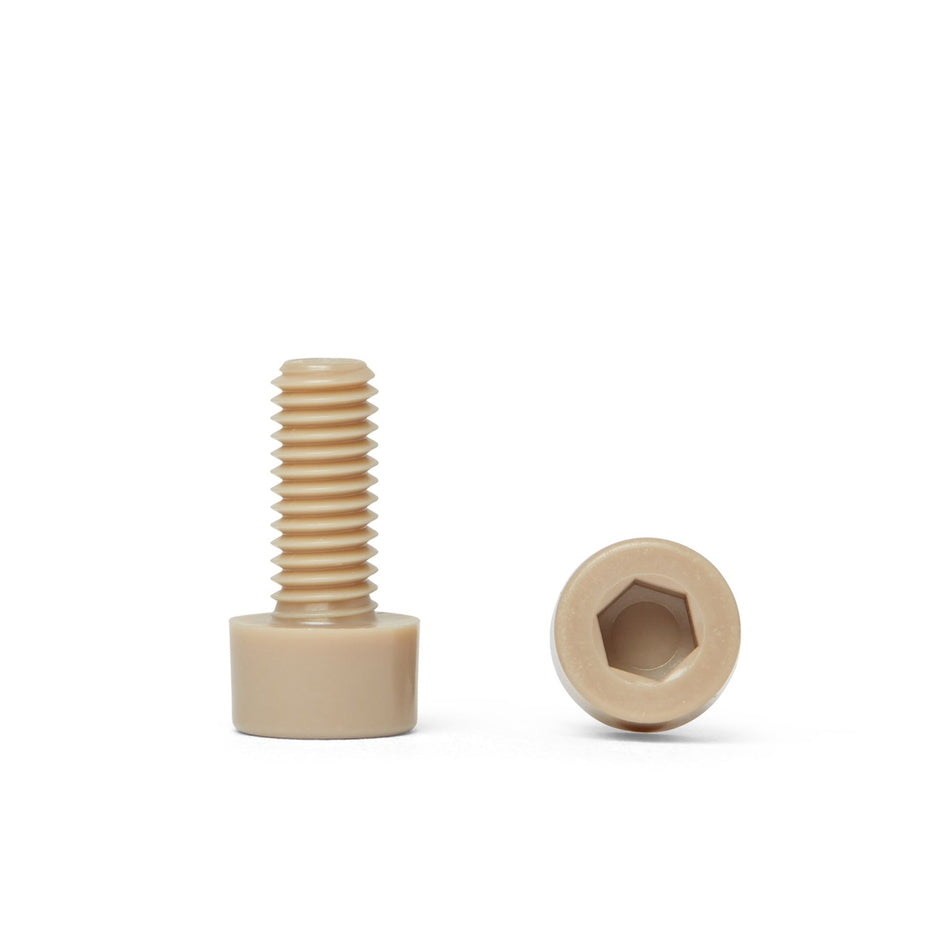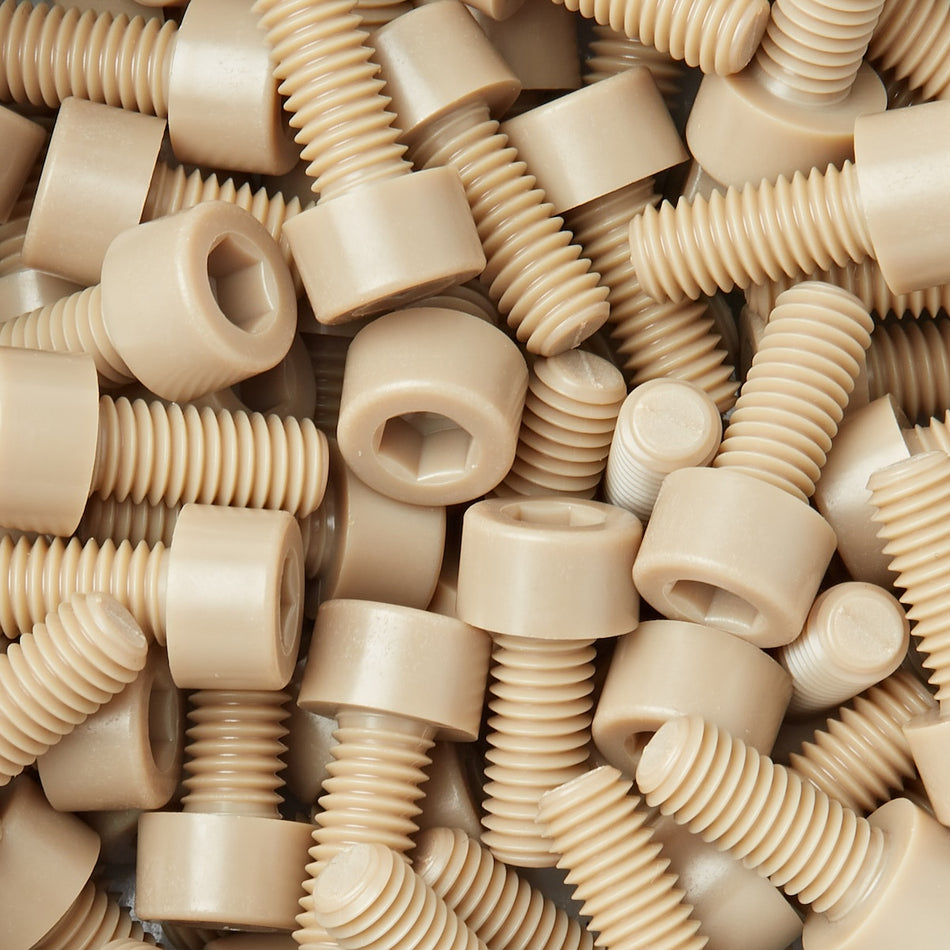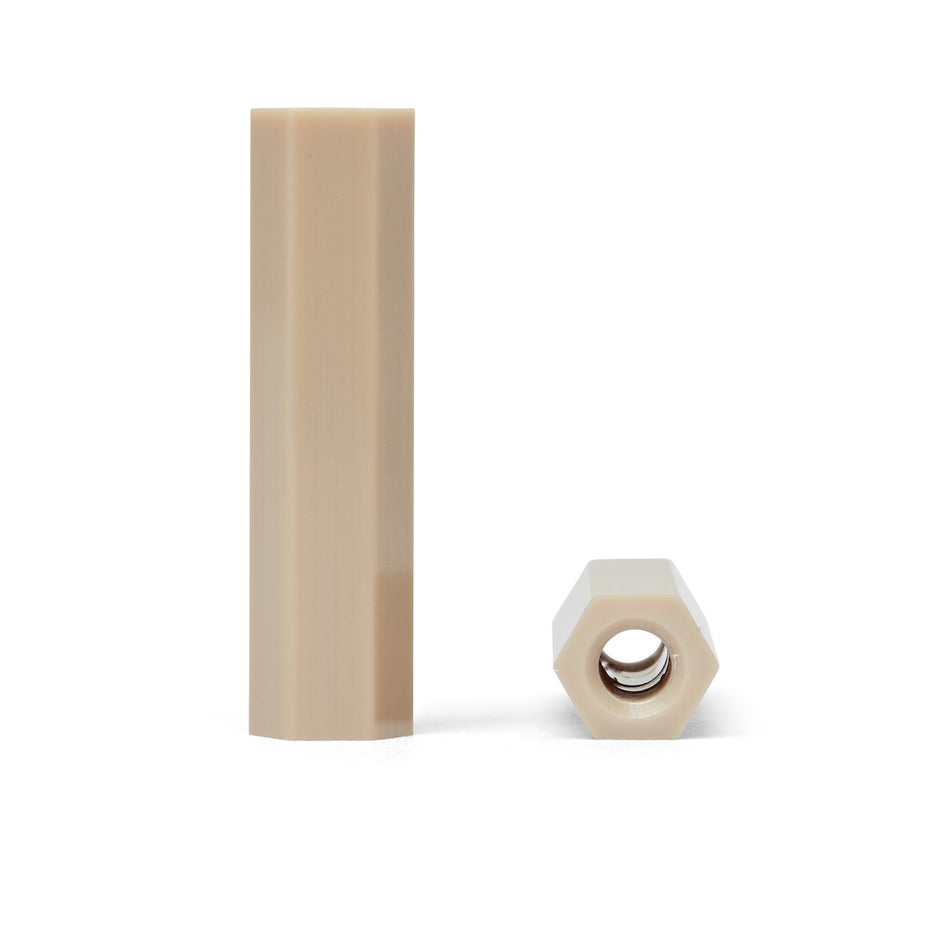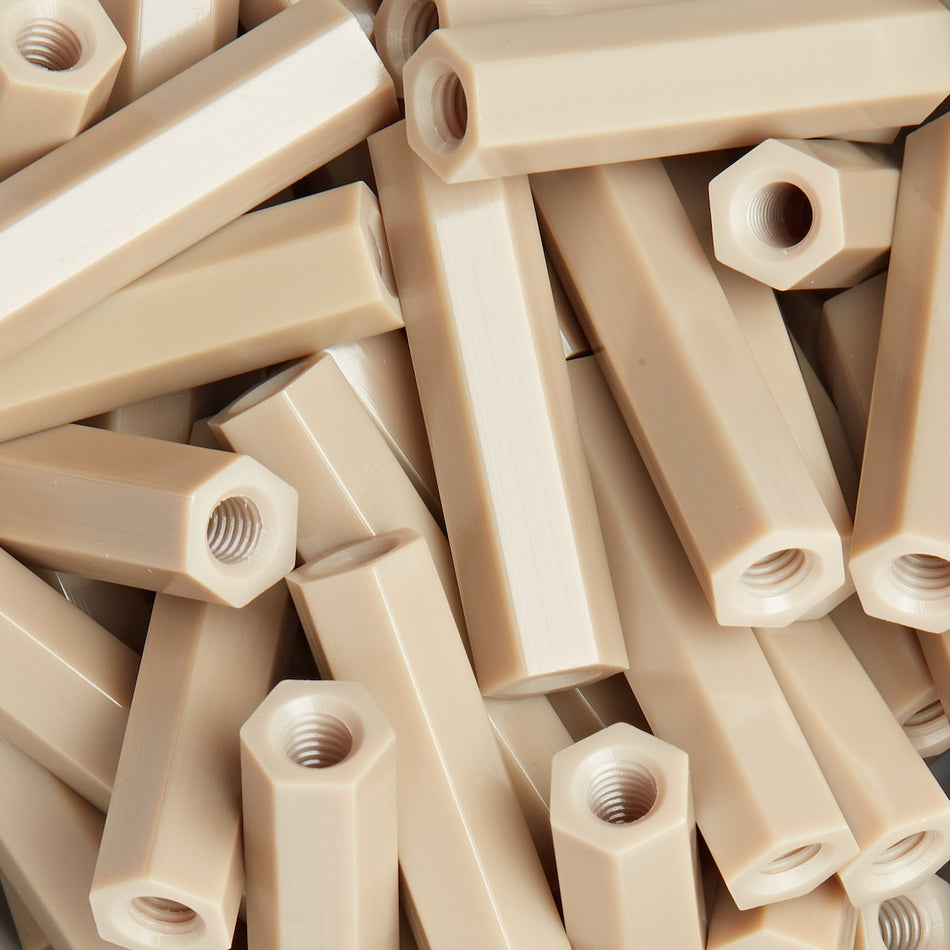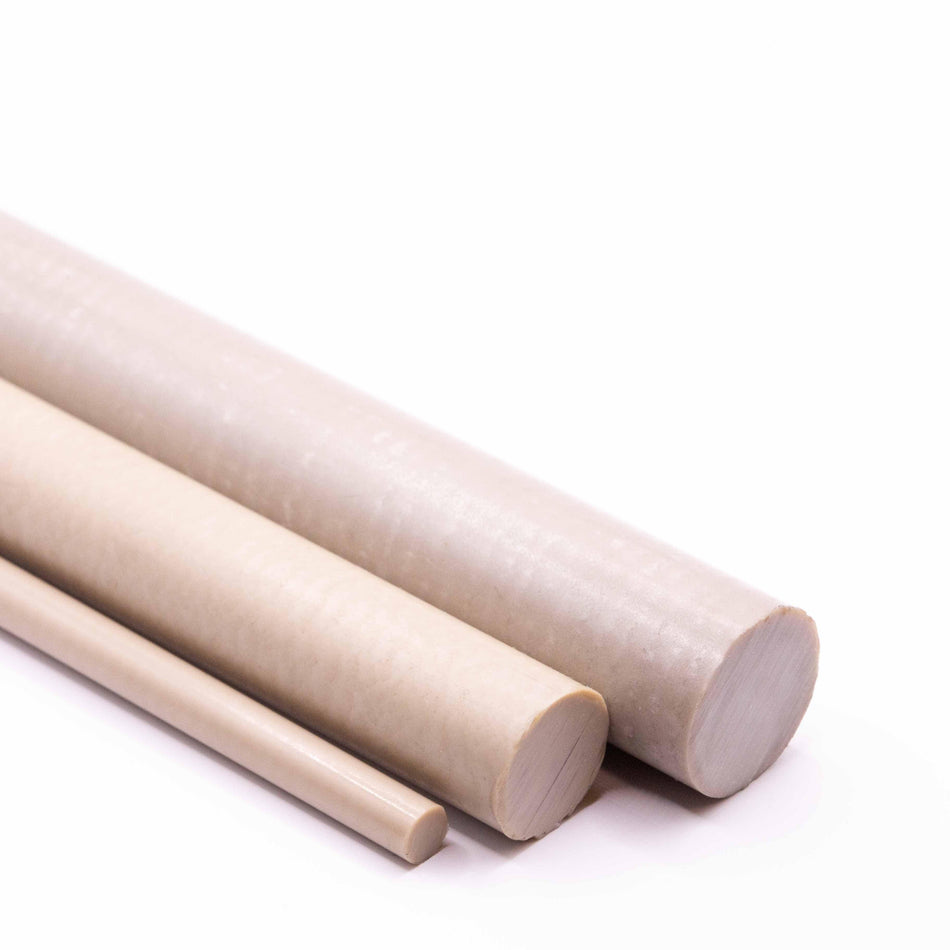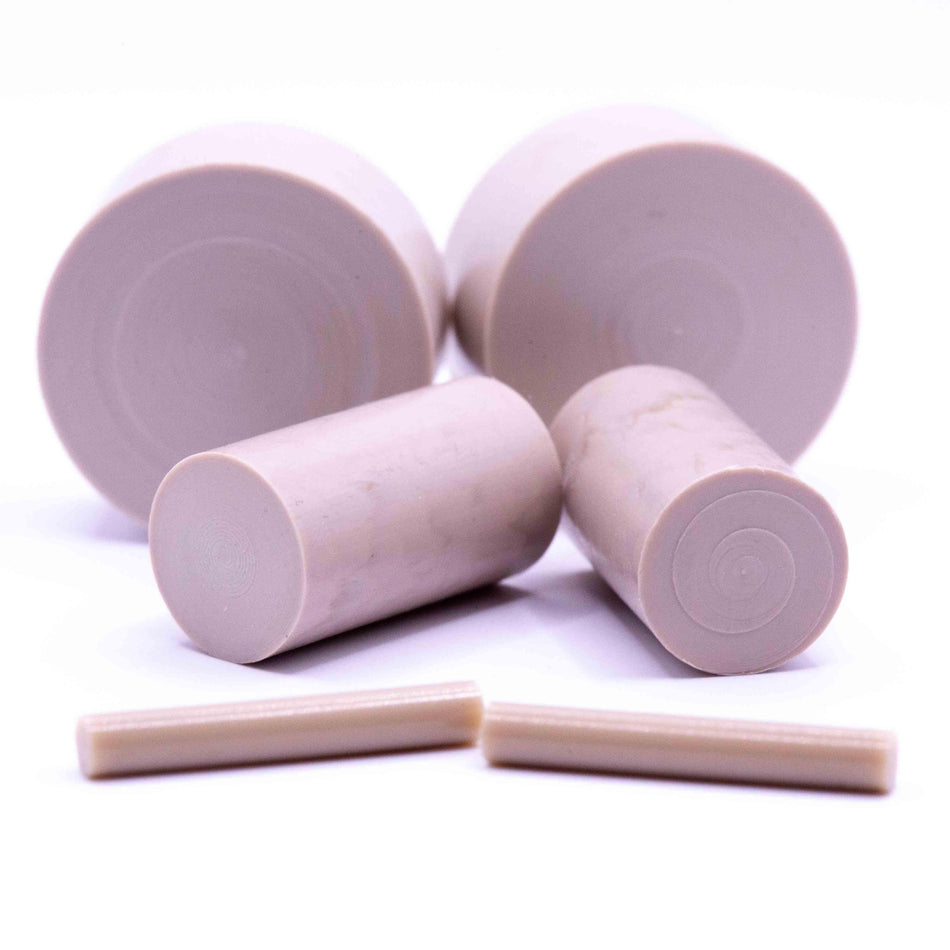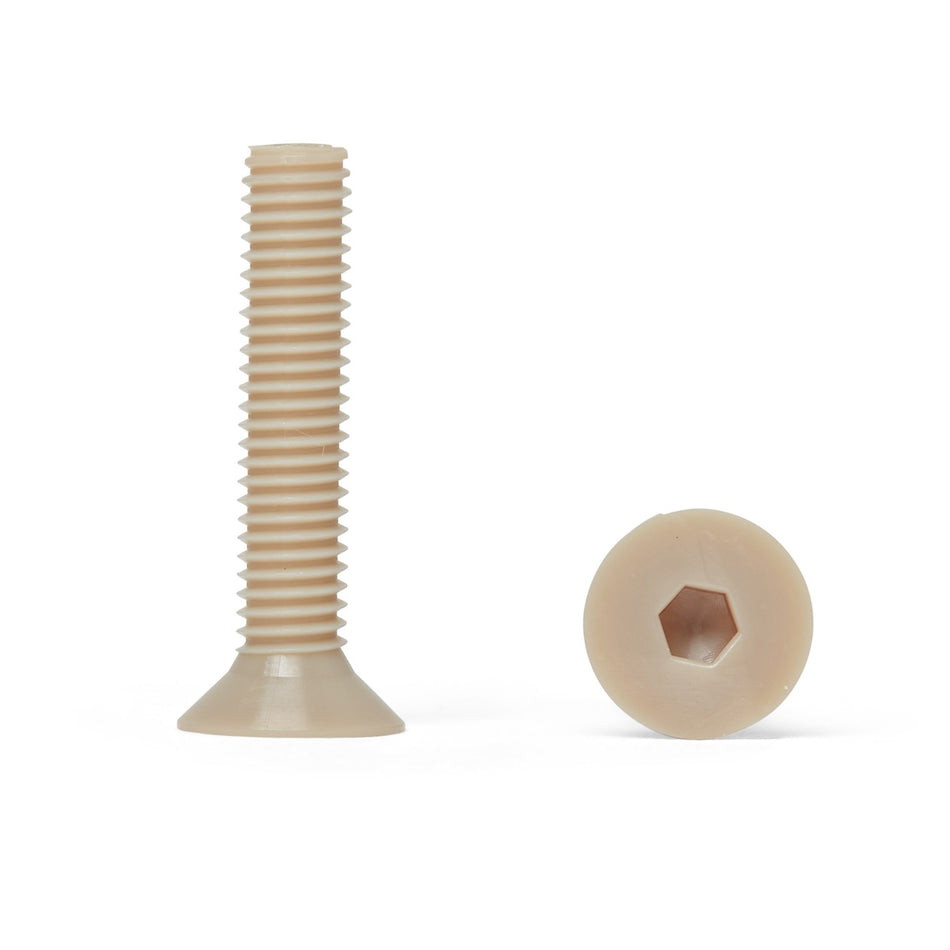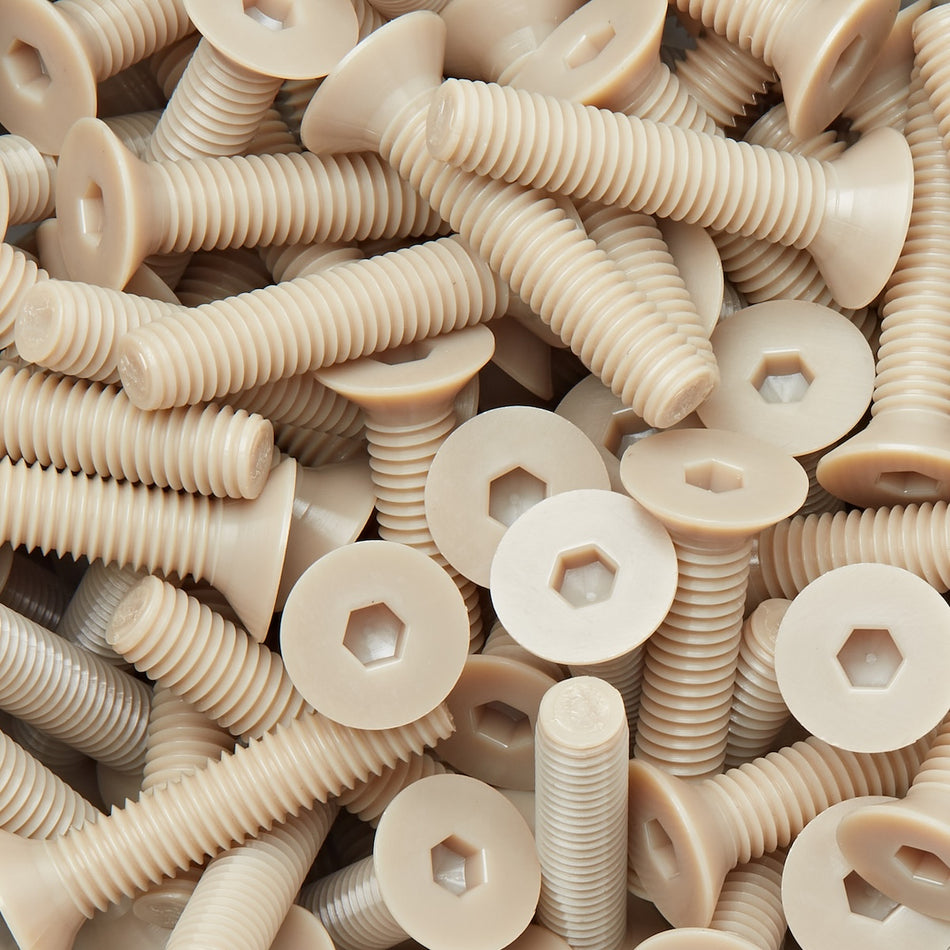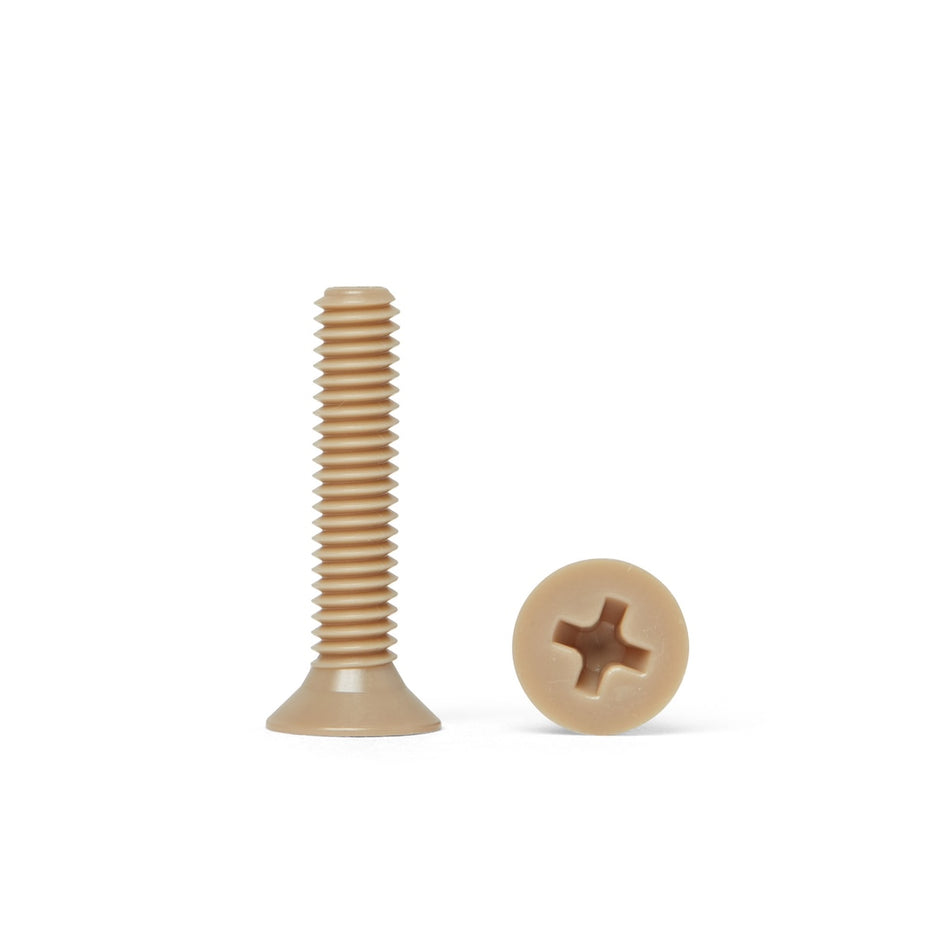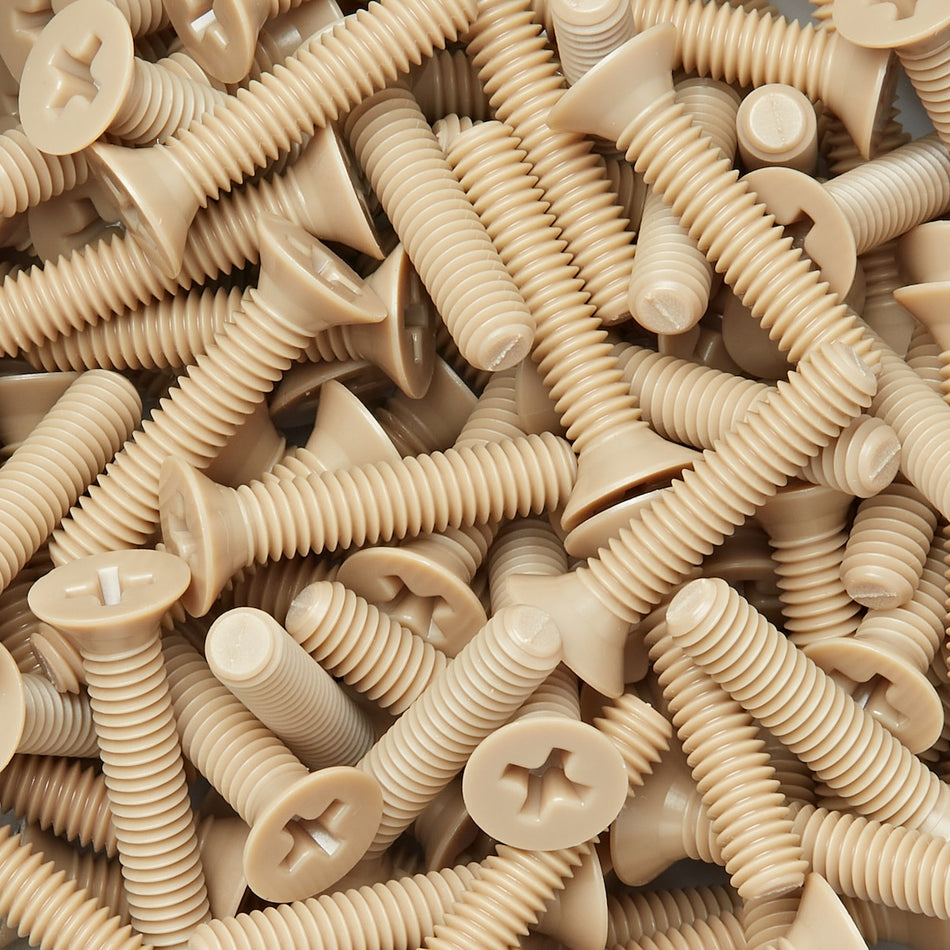72 Products
How the anti-Biological Fowling Industry uses of Polymer Screws, Nuts, Bolts, Washers, and Fasteners
Polymer screws, nuts, bolts, washers, and fasteners are made from synthetic materials, such as plastic or rubber, rather than metal. They are used in a variety of applications where traditional metal fasteners may not be suitable, such as in marine environments where corrosion resistance is important.
In the context of biological fouling, polymer fasteners may be used in situations where metal fasteners would be prone to fouling. For example, they may be used on the hulls of ships or on aquaculture equipment to prevent the attachment of marine organisms. Polymer fasteners may also be used in water treatment plants to prevent the accumulation of biological fouling on pipes and filters.
There are a number of advantages to using polymer fasteners in these applications. They are generally more resistant to corrosion and may have a longer lifespan than metal fasteners in marine environments. They are also often lighter in weight, which can be important in some applications. However, they may not be as strong as metal fasteners and may not be suitable for use in all situations.
Biological fouling refers to the accumulation of living organisms on a surface over time. This can occur in both natural and man-made environments, such as on the hulls of ships, on aquaculture equipment, or in water treatment plants.
Biological fouling can have a variety of negative effects. In the marine environment, it can reduce the efficiency of ships by increasing drag and decreasing speed. In aquaculture, it can interfere with the growth and health of cultured species and may also introduce new organisms into the environment that can have negative impacts on native species. In water treatment plants, biological fouling can clog filters and pipes, reducing the effectiveness of the treatment process.
There are a number of methods that can be used to control biological fouling, such as the use of chemical biocides or the application of coatings that prevent the attachment of organisms. However, these methods can have negative impacts on the environment, so there is ongoing research into alternative methods for controlling biological fouling that are more sustainable and environmentally friendly.

